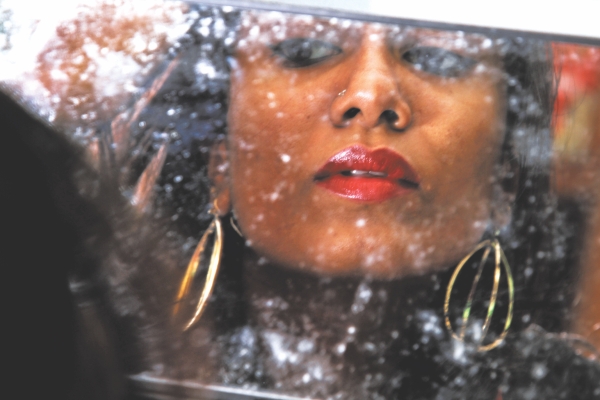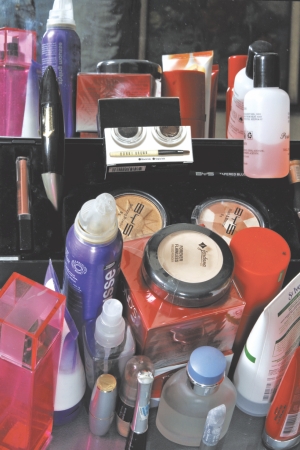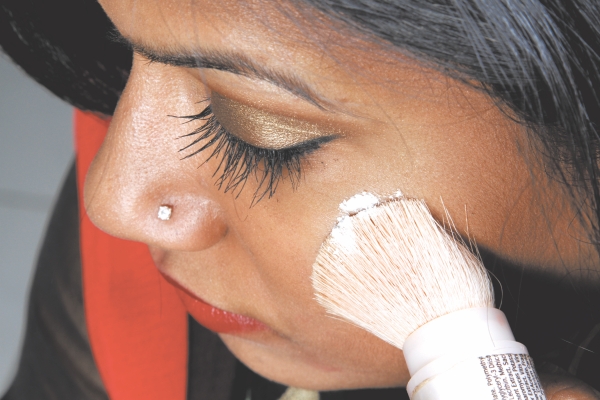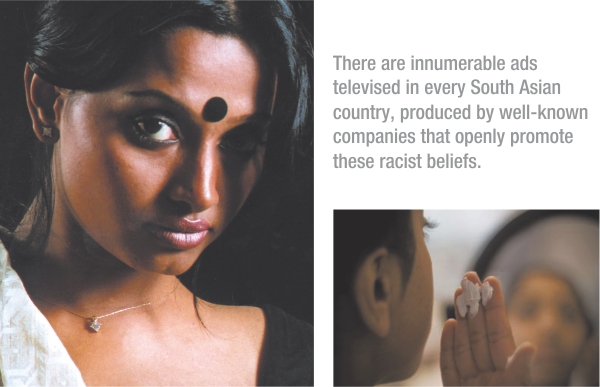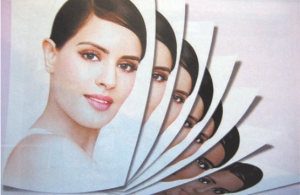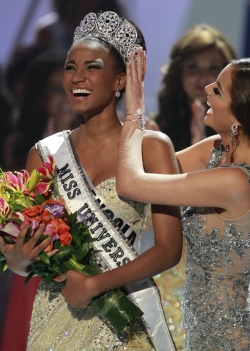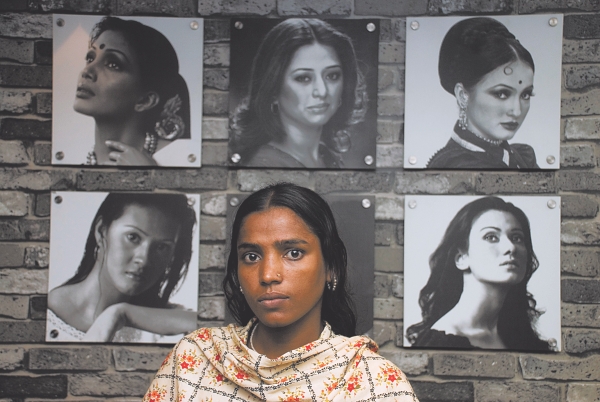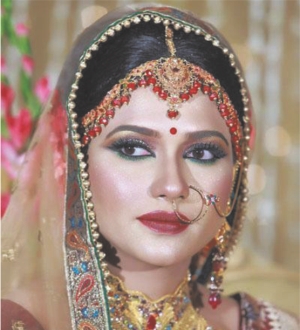| Home - Back Issues - The Team - Contact Us |
 |
| Volume 11 |Issue 08| February 24, 2012 | |
|
|
Cover Story Return of the Dark Ages
The people of the twenty first century live in a progressive world. A civilised world, which has come a long way from its barbaric past - or so we'd like to believe.
Anika Hossain In a world where the most powerful man is African American, you would think people would dispel the idea that the colour of your skin determines your success in life. Unfortunately that is not the case, especially in the subcontinent, where there is a common perception that if you are not light skinned, you are doomed to misery and failure. In a part of the world where most people have varying shades of brown skin, trust us South Asians to have found a way to discriminate against each other. The most common victims of this prejudice are dark skinned women, who incidentally, make up a majority of the female population of South Asia.
Parents lose sleep over the future of their kalo (dark) daughters—will they ever find good husbands? If so, how much dowry will it take to get these girls off their hands? Men reject prospective wives because they prefer someone “just a shade lighter,” darker women grow up hearing about their bleak futures, praying every night for a magical transformation.
If you are thinking that this attitude is limited to rural cultures, think again. “I have grown up hearing my skin colour is moila as in dirty, from various family members and my parents' friends,” says Samina Khalil (not her real name) who belongs to an upper middle class family in Dhaka. “They would then proceed to comfort my parents, telling them that since I come from a good family, it will make up for my shortcomings. You know, when I was younger I always believed I was quite ugly,” she says. “My grandmother would always fret about my dark skin,” says Amiya Hussain (not her real name), who comes from a well to do background, “When she passed away just recently, I discovered that she had left me a huge amount of money and instructed my father to use it as my dowry. I laugh about it now, but at the time I felt terrible that someone I loved so much thought so little of me,” she shakes her head. “I was rejected five times by prospective suitors because of my skin colour,” says Nusrat Jahan, a successful businesswoman, “I refused to have an arranged marriage after that. It was just too humiliating.” These accounts may make you wonder (one would hope) - where on earth did this ridiculous mindset originate? “This perception was developed centuries ago when our people were ruled by foreign invaders,” says Rezwana Karim, Lecturer of Anthropology at the Jahangirnagar University. From the Aryans and Persians, who were succeeded by the Mughals, followed closely by the British, for hundreds of years, our people were oppressed by white skinned rulers.
“These rulers, especially during the colonial times, defined beauty,” says Karim. “They told us for years that to be beautiful you must be light skinned. This was nothing but a political construct. They wanted us to believe that in order to receive respect and equal status in society, we had to be like them and we were successfully brainwashed and therefore subservient. Back in the day, even when they raped our women, they believed that their victims were gaining something from this. If they gave birth to fair skinned babies as a result of the rape, they would be elevated within their society. The idea is disturbing, but that is the way things were.” Colonialism came to an end in 1947, but we unfortunate folks seem to be suffering from a long drawn out hangover. We still associate fair skin with aristocracy, nobility, wealth and prosperity and dark skin with poverty and menial labour, which requires one to stay out under the sun for long hours. The world around us has changed, women of colour have become successful actresses, models and winners of prestigious beauty pageants, but we still hold on to the belief that fair is beautiful as though our very existence depends on it.
The evidence of this can be seen everywhere. “Take an example from religion,” says Karim, “The word Krishna means black/dark, but the Hindu god is depicted as a blue man, simply because there is no way black is a good colour for a god. Think about the goddess Durga who has many identities, one of which is Kali the warrior. Kali is the only goddess who is painted black, and that too because she is the angry and dangerous version of Durga—attributes that are generally viewed in a negative light. All other gods and goddesses are painted white.” Innumerable famous paintings and sculptures glorify the white skinned woman. Most TV shows, theatre performances and movies made in the subcontinent have fair skinned protagonists. The question that arises now is, why are we still holding on to this archaic mindset? “I think this is because unlike the black and the white population, our people do not have a history attached to the colour of their skin,” says Karim. “We are considered a hybrid society that has changed over the years from our original shade of colour and therefore suffer from an identity crisis of sorts. If you ask any average Bengali what the colour of their skin is, very few will be able to tell you they are brown. They will identify their colour as either fair or dark. This colour consciousness has been ingrained deeply in us.”
Bad enough as this is, – having to hear from older generations and sometimes even your peers that you are not fair enough to be good enough, manufacturers have found a way to make a profit from this defective thought process. Multinational companies have and continue to come up with thousands of products starting from face washes, creams, lotions, face packs, powders, soaps, cosmetics etc that promise to give you that milky white skin you should be craving, if you are not already doing so.
Selling these products would not be half as offensive if they did not advertise them the way they do. A number of well-known companies produce ad campaigns telling people blatantly that you are worthless if you are not fair. Some of these infuriating ads are aired at least 50 times a day each, on TV, one Indian ad showing an unfortunate dark skinned college student who has such a low self esteem, that despite having an amazing voice, she cannot sing in public. Her friend recommends a fairness cream and instantly she becomes a rock star. Another shows a dark skinned reporter who looks so dull, she is never called on to ask questions at the various press conferences she attends. Once she starts using a fairness cream, she is transformed within a week and all the celebrities only want to answer questions from her. Yet another ad, this one Bangladeshi, shows a girl who fails to attract the attention of the boy she likes and starts using a fairness cream as a solution to her problem and voila! All he wants to do is stare at her and an offer of marriage follows. There are innumerable ads televised in every South Asian country, produced by well-known companies that openly promote these racist beliefs. They try to convince viewers that seemingly unrelated matters such as job prospects, talent, intelligence and love are somehow dependent on skin colour. The worst part is, they are hugely successful in doing so. TV shows and movies reinforce these attitudes subtly, by casting fair skinned actors for lead roles. The fairness product industry is now worth billions. “In my opinion, when ad campaigns for fairness products are created by multinationals, they are shying away from their social responsibilities,” says media analyst Muhammad Jahangir. “I understand that it is a business and they have to market their product, but alongside this, they must remember their duty to the society and preserve the values of the society. I think a large section of our population continue to confuse fair with beautiful because of these extensive campaigns. We forget that Tagore has written beautiful poems about “kalo meye,” the dark beauty, women with darker skin have fascinated artists over the centuries. Unfortunately, post colonialism especially, our society has fallen behind in terms of education and cultural development and over the years people have become stuck on this idea that fair is beautiful.” According to Jahangir, these ads and media campaigns patronise all the negative values and beliefs within the society and reinforce them, while discarding the good. “If you hear and see something at least 20 times a day, you are bound to be convinced at some point,” he says. “The problem is, very few people question these campaigns and of those who do, even fewer stand up for their beliefs. Many women lose their self-confidence because of these ads and they carry themselves in a way that makes them invisible or unnoticeable. These campaigns in a way cripple women psychologically. You look good if you think you do and are confident because you know you look good--people tend to forget that.”
Jahangir shares that there is no guarantee or scientific proof that these fairness products actually work the way they are advertised. “I have worked with people in pharmaceutical companies who say that these don't bring about the changes in skin colour that the ads promise,” says Jahangir. “However their voices are not heard. The multinational companies creating these ads have huge expensive campaigns and the people opposing them do not have funds to equal theirs to create anti-fairness product campaigns. So for the most part, they are ignored.” If money is what they are after, why not market products that make you look fresh, glowing and give you even toned skin that is spot free and wrinkle free? The fact of the matter is that these companies know the weakness in their target customers and they take advantage of this, ignoring the ethics of the issue. “They justify themselves by saying they are giving women what they want, and brainwash women as they do this,” says Jahangir. “I find this to be no different than supporting the idea that it is a curse to be born a certain way. Women have it bad enough as it is. They are made to feel unwelcome, inferior and unwanted, female feticide is still rampant in many areas of the subcontinent. Why add to it?”
Add to it they do however, and women have little reprieve from the judgmental gaze of the society and their relentless criticism. “I went to a beauty parlour once and was told not too subtly that I was badly in need of a fairness facial or some such thing,” says Ayesha Siddique, “Most of the women who visit this parlour are people I know and had believed to be progressive minded, but I was shocked to see that most of them use fair polish or lightening facials regularly in hopes of becoming snow white!” In the past the only way a dark-skinned woman could change her skin colour was through the use of many layers of white make-up. Although the tradition of the unnaturally white bride (or person wanting party make-up done) still continues, nowadays every parlour in the city offers ways to become whiter, permanently. They offer whitening facials that contain bleach and encourage regular visits to maintain the resulting artificially fair skin. Those who can afford it spend thousands on what they call “skin treatment.”
According to Farzana Shakil, the products made by multinational companies work well for people who have tanned significantly, and act like anti-tan agents. “This darkness is not one's natural skin colour and often occur due to exposure to the sun or pollution, I have noticed that many of our client's faces become darker than the rest of their bodies. In such cases if they use a brightening cream and it brings out their original complexion then what's the harm in that?”
Shakil has many clients who come to her parlour hoping to be transformed into significantly fairer creatures. “Personally I don't like it when someone comes to me expecting me to change their skin colour, I think there is a lot that comes into play in this—education, awareness etc,” says Shakil. “As for multinational companies, I don't believe that they will do anything that is bad for the skin. They would not risk getting sued. I do believe that there are some products that can completely change the skin and I do not think healthwise that is good for you. Changing your skin colour with make-up is one thing, it is temporary but I don't think people should attempt to change their colour permanently.” Until recently, men had been spared the obsessive need to be light skinned, but their care-free days are now over. Superstars like Shah-Rukh Khan, Shahid Kapoor and John Abraham are seen on screen using fairness products for men. The tall dark and handsome man is apparently no longer desirable. Ads show that men now have to be extraordinarily fair and handsome to be cast in leading roles, to be successful career builders or sportsmen and of course to get the ladies (fair ones). Why, even our own star cricketer Tamim Iqbal has started using fairness products and can be seen whizzing around in his brand new BMW- a picture of success!
According to dermatologists, fairness products can sometimes cause severe damage to the skin. “Some types of skin whitening products have ingredients such as mercurous chloride (mercury) which can act as bleach,” says dermatologist Dr Mahfuza Hussain. “This has an instant whitening effect, but in the long run it causes pigmentation in the skin that is hard to remove. Constant use of these creams can cause the skin to become thinner and lose its tightness. More dangerously, it can cause the skin to lose its immunity. The skin becomes prone to fungal infection, acne and if there is a steroid in the product, it can cause renal problems in the long run.” According to Dr Hussain it is a fact that dark skin, which has more melanin is less prone to skin diseases and is protected from the sun. Light skin is more vulnerable to begin with, but the fairness products add to this by killing the melanocytes in the skin that produce melanin making the skin photosensitive. This makes sunlight more harmful and causes blisters, burns and itchiness easily. Most people are blissfully unaware of these negative effects and feminists, activists, doctors and the educated few do not have loud enough voices to drown out the fairness propaganda spread by these powerful companies. This phenomenon is not just limited to South Asia. East Asian women, who are already light skinned, try ways to be lighter, Middle Eastern women crave for a more pinkish white colour—the obsession is widespread. “We have progressed in terms of women's education and development, but we have a long way to go, perhaps another century before this mindset can be changed,” says Muhammad Jahangir. Waiting passively just won't do. Those of us who know better must take the initiative to raise awareness in others. A person's identity should not be determined by the colour of their skin-they were born with it, they cannot and should not be encouraged change it. A person should be judged by what they have achieved in life, in terms of education, talent and other accomplishments. Beauty should be defined by a person's features and personality rather than their colour. There are many dark skinned, beautiful women in this world. Writing about this, holding conferences, meetings and debates may not make much of a difference now, but that does not mean we should stop doing it. If these won't work, perhaps gathering a hundred women and standing under a billboard advertising fairness products with placards, condemning them will. Perhaps burning these products publicly as a sign of protest will. Change will happen eventually. It has to begin somewhere. Copyright (R) thedailystar.net 2012 |
||||||||||||||||||||||||||||

